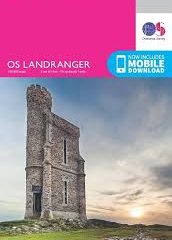Madagascar: A Unique Island Paradise Rich in Biodiversity

Introduction
Madagascar, the fourth largest island in the world, is famed for its extraordinary biodiversity and unique wildlife. Approximately 90% of the wildlife found here is endemic, meaning it cannot be found anywhere else on the planet. This fascinating island is not only a biological treasure trove but also a cultural melting pot, with a rich history influenced by Africa, Asia, and Europe. As international interest in Madagascar continues to grow, particularly regarding its tourism industry and conservation efforts, it is more important than ever to understand the current trends and challenges facing this vibrant island.
Current Trends and Events
Tourism in Madagascar has seen a dynamic resurgence post-pandemic, with a noticeable increase in visitors eager to explore its natural wonders such as the Avenue of the Baobabs, the Tsingy de Bemaraha National Park, and the pristine beaches of Nosy Be. According to the Madagascar National Tourist Office, tourist arrivals are projected to increase by over 30% in 2023 as the world reunites after the COVID-19 pandemic.
Moreover, recent government initiatives aimed at enhancing infrastructure have improved access to some of the island’s most remote gems. The Malagasy government has also placed a strong emphasis on eco-tourism, encouraging visitors to engage in sustainable practices while exploring the island’s unique landscapes and fulfilling wildlife experiences.
Concurrently, conservation efforts are intensifying, with numerous NGOs and international organisations collaborating with local communities to protect Madagascar’s unique ecosystems from deforestation and illegal wildlife trade. Recent reports suggest a growing willingness among local populations to partake in conservation activities, facilitated by education and sustainable livelihood programs.
Conclusion
As Madagascar continues to navigate its recovery from the pandemic, its cultural and ecological significance remains paramount. With increasing tourist interest and active conservation efforts, Madagascar presents an incredible opportunity for visitors to experience its breathtaking beauty while supporting initiatives that protect its unique biodiversity. By choosing ethical travel options, explorers can contribute to the sustainable future of this island paradise that is unlike any other. The coming years will be crucial in determining how effectively Madagascar can balance economic growth through tourism with the preservation of its extraordinary natural heritage.








